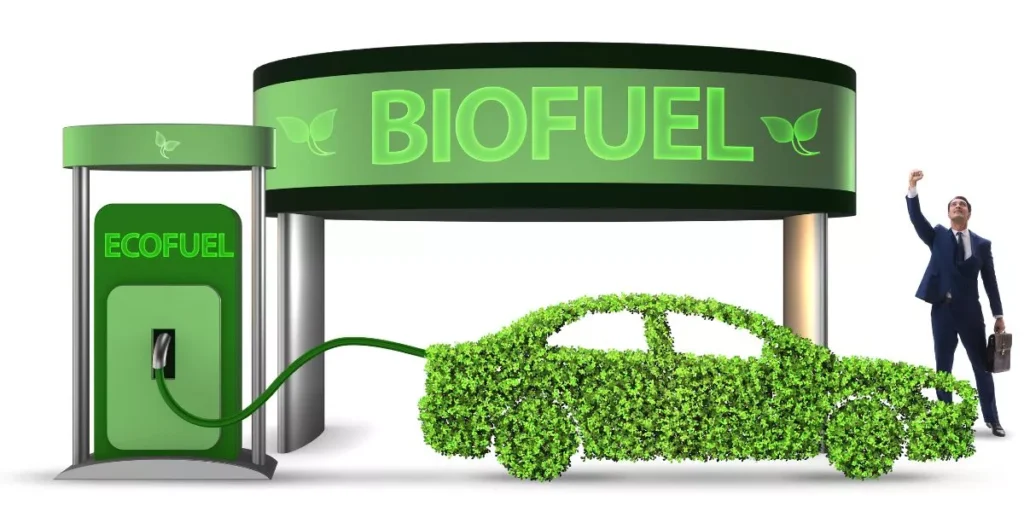
Switching to renewable fuels can have profound effects on the environment, offering a range of benefits worth considering. The shift towards sustainable energy sources not only decreases greenhouse gas emissions but also plays a crucial role in enhancing air quality and preserving natural resources. By exploring the advantages of renewable fuels, you might discover how these alternatives can contribute to a more eco-friendly future.
Reduced Greenhouse Gas Emissions
By switching to renewable fuels, you can significantly reduce greenhouse gas emissions. Traditional fossil fuels like coal, oil, and natural gas release harmful gases like carbon dioxide when burned, contributing to the greenhouse effect and climate change. However, renewable fuels such as solar, wind, and hydropower produce energy without emitting these gases, making them a cleaner and more sustainable option for the environment.
Renewable fuels offer a way to combat the growing concerns about global warming by providing a cleaner source of energy for your daily needs. By utilizing renewable fuels in your transportation, heating, and electricity generation, you can play a vital role in reducing the overall carbon footprint. This shift towards cleaner energy sources not only helps in combating climate change but also promotes a healthier environment for future generations to come.
Making the switch to renewable fuels is a proactive step that individuals like you can take to contribute to a greener and more sustainable world. Join the movement towards reducing greenhouse gas emissions by embracing renewable energy sources in your daily life.
Improved Air Quality
Switching to renewable fuels not only reduces greenhouse gas emissions but also improves air quality significantly. By using renewable energy sources like solar, wind, and hydropower instead of fossil fuels, you can help decrease the amount of harmful pollutants released into the atmosphere. Traditional fuels like coal and oil emit pollutants such as sulfur dioxide, nitrogen oxides, and particulate matter that can lead to smog, acid rain, and respiratory issues. These pollutants not only harm the environment but also pose health risks to humans and wildlife.
Renewable fuels produce minimal to zero emissions of these harmful pollutants, leading to cleaner air and a healthier environment. Improved air quality means reduced cases of respiratory diseases, asthma attacks, and cardiovascular problems. By making the switch to renewable fuels, you contribute to creating a cleaner and safer atmosphere for yourself and future generations. Embracing renewable energy sources is a crucial step towards combating air pollution and its detrimental effects on both the environment and public health.
Conservation of Natural Resources
To ensure the sustainable use of our planet’s resources, it’s essential to focus on the conservation of natural resources. By switching to renewable fuels, you contribute to the preservation of vital resources like fossil fuels and reduce the strain on ecosystems. Traditional energy sources such as coal, oil, and natural gas are finite, and their extraction and consumption have detrimental effects on the environment. Conserving these resources through the adoption of renewable alternatives like solar, wind, and hydropower is crucial for long-term sustainability.
Renewable fuels offer a way to harness energy without depleting scarce resources, helping to safeguard biodiversity and protect natural habitats. Additionally, the extraction of fossil fuels often involves destructive practices like mountaintop removal mining and drilling in sensitive ecosystems. By choosing renewable energy sources, you support environmentally friendly practices that minimize harm to wildlife and ecosystems.
In essence, the conservation of natural resources through the transition to renewable fuels is vital for safeguarding the health of our planet and ensuring a sustainable future for generations to come.
Mitigation of Climate Change
To address the pressing issue of climate change, mitigating its impacts is imperative. Switching to renewable fuels plays a crucial role in reducing greenhouse gas emissions, which are the primary drivers of global warming. Unlike fossil fuels, renewable fuels like solar, wind, and hydroelectric power produce little to no greenhouse gases when generating electricity. By transitioning to these cleaner energy sources, you can help decrease the overall carbon footprint and lessen the intensity of climate change effects.
Renewable fuels also offer a sustainable solution for long-term energy consumption. As non-renewable resources such as coal and oil continue to deplete, the shift towards renewables becomes increasingly vital. Embracing renewable fuels not only mitigates climate change but also ensures a more stable and secure energy future for generations to come.
Incorporating renewable fuels into your daily life, whether through supporting green energy initiatives or utilizing solar panels, contributes significantly to climate change mitigation efforts. By making conscious choices to reduce reliance on fossil fuels, you actively participate in protecting the planet and fostering a more sustainable environment.
Automotive & Tools















